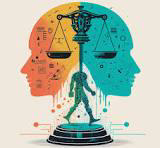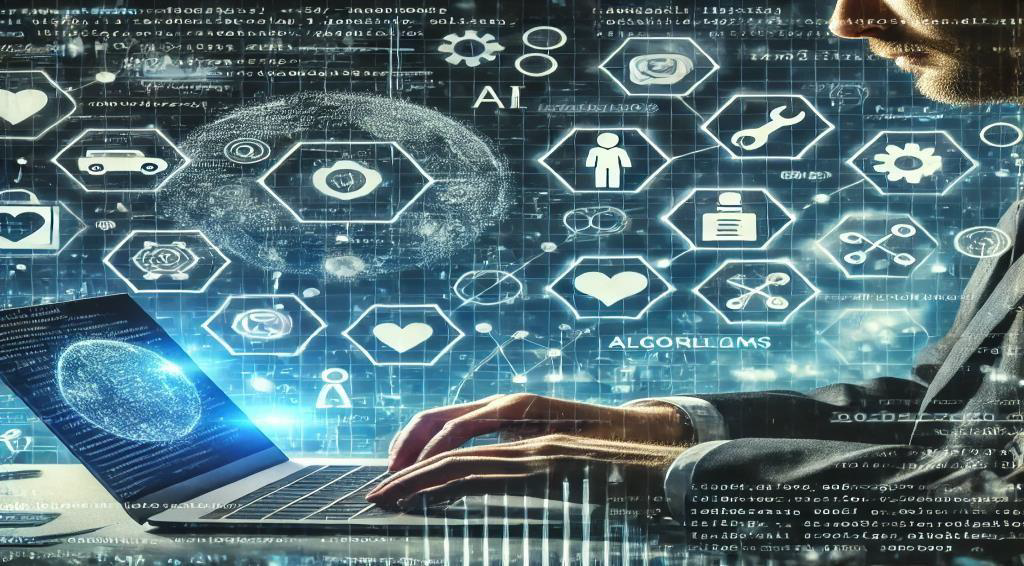Artificial Intelligence (AI) is reshaping industries across the globe, from healthcare and finance to entertainment and transportation. However, the rapid growth of AI raises important ethical concerns. Developing fair and responsible AI systems is essential to ensure that technology benefits everyone while minimizing potential harm. This blog explores the ethical challenges of AI, the importance of fairness, and the best practices for building responsible AI systems.
What is Ethical AI?
Ethical AI refers to designing and developing AI systems that uphold fairness, transparency, and societal values. It involves creating algorithms that are unbiased, explainable, and respectful of user privacy. Ethical AI ensures that AI systems are not only effective but also aligned with human rights and social principles.
Major Ethical Challenges in AI Development
➢ Bias and Fairness:
- AI systems can acquire biases from their training data, potentially resulting in unfair treatment of specific groups.
- Example: Facial recognition systems may have higher error rates for people with darker skin tones due to unbalanced training data.
- Solution: Use diverse and representative datasets and regularly test algorithms for bias.
➢Transparency and Explainability:
- Many AI models operate like black boxes, making it difficult to understand how decisions are made.
- Example: Loan approval algorithms may reject applications without providing reasons, causing frustration among users.
- Solution: Develop Explainable AI (XAI) systems that offer insights into decision-making processes.
➢Privacy and Data Protection:
- AI systems often rely on large amounts of personal data, raising concerns about misuse.
- Example: Virtual assistants that continuously collect voice data could compromise user privacy.
- Solution: Use privacy-by-design methods, encrypt data, and obtain user consent before collecting information.
➢Accountability and Responsibility:
- When AI systems make mistakes, it is often unclear who is responsible.
- Example: If an autonomous vehicle causes an accident, should the manufacturer, developer, or user be held accountable?
- Solution: Establish clear legal and ethical guidelines to assign accountability.
➢Job Displacement and Economic Inequality:
- AI-powered automation can replace jobs, particularly in repetitive and manual labor sectors.
- Solution: Governments and businesses should implement reskilling programs to help workers transition into new roles.
➢Algorithmic Transparency:
- Lack of clarity in how algorithms function can lead to distrust among users.
- Solution: Developers should create AI systems with clear documentation on how data is processed and decisions are made.
➢Environmental Impact:
- Training large AI models requires substantial energy, which can increase carbon emissions.
- Solution: Adopt energy-efficient algorithms and use renewable energy sources during model training.
Why Fair and Responsible AI Matters
Building fair and responsible AI systems is vital to creating a more inclusive society. Ethical AI promotes trust, protects individual rights, and enhances decision-making processes. It helps prevent discrimination and ensures that technology serves all communities equally.
By prioritizing fairness and transparency, businesses can strengthen customer trust and comply with evolving regulatory standards.
Best Practices for Ethical AI Development
➢Diverse and Balanced Datasets:
- Use datasets that reflect the diversity of society.
- Regularly update data to ensure it remains current and unbiased.
➢Explainable AI Models:
- Design models that provide clear explanations for their decisions.
- Use visual tools to present decision-making processes.
➢Privacy Protection Measures:
- Implement encryption and data anonymization.
- Seek user consent before data collection.
➢Regular Audits and Bias Testing:
- Conduct routine checks to detect and correct biases.
- Invite third-party experts to review algorithms.
➢Ethical Guidelines and Governance:
- Develop internal policies for ethical AI development.
- Collaborate with regulators and ethicists to align AI systems with legal standards.
➢Human-in-the-Loop Systems:
- Design AI systems that require human validation before making critical decisions.
➢Energy Efficiency and Sustainability:
- Use energy-efficient hardware and optimize algorithms to reduce environmental impact.
➢Inclusive Design:
- Engage diverse communities in the design and testing phases to ensure AI meets the needs of different user groups.
The Role of Engineers in Ethical AI.
The Future of Ethical AI
Conclusion
Author Bios:
1. Mrs.Y.Vahidhabanu, AP/CSE
2. Mr.K.Karthick, AP/CSE
3. Pradeepkumar K, III yr/’B’ - CSE
4. Thayumanavan A, III yr/’B’ - CSE





Comments
Post a Comment